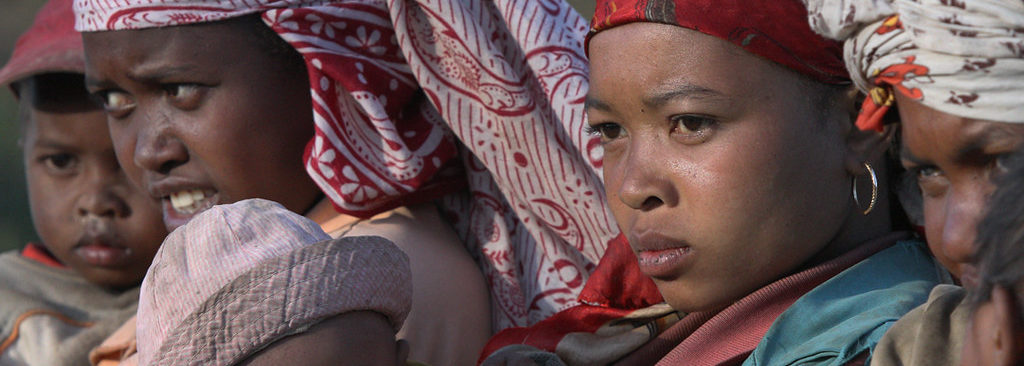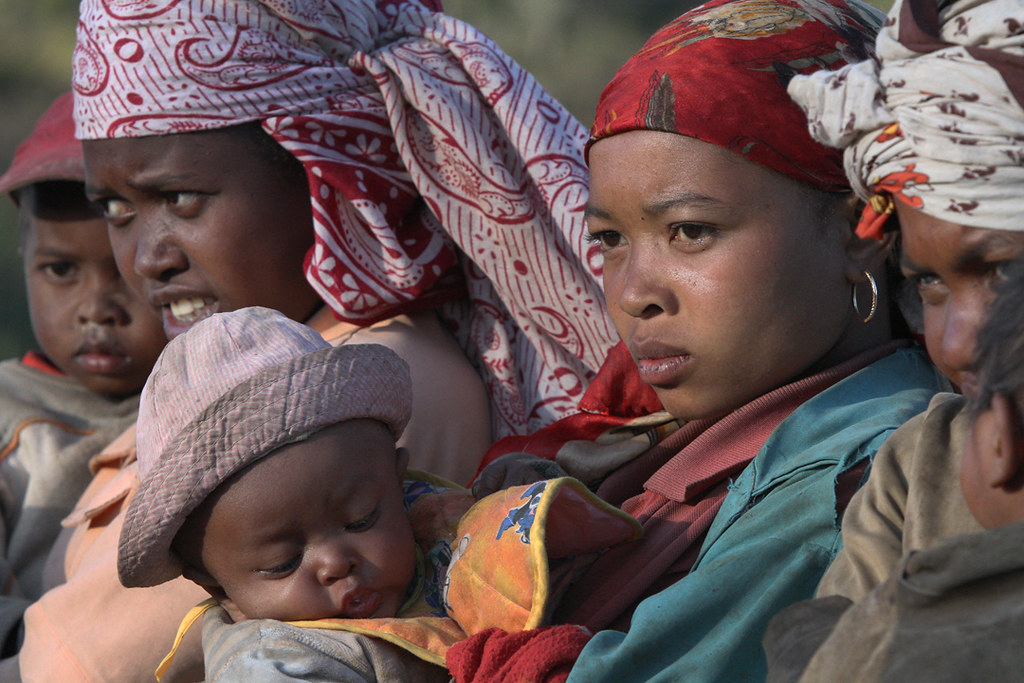Published: 09/20/2022
Ruth M. Gibson, a new Banting Postdoctoral Fellow at Stanford, has teamed up with Paul H. Wise to conduct an unprecedented exploration of the impacts of sanctions on maternal and child health.
By Jamie Hansen, Communications Manager
When Ruth Gibson arrived in Madagascar in 2012 to lead a non-profit foundation focused on women’s and children’s health, she witnessed a collapsing healthcare system and children suffering from widespread food insecurity.

“In my first week on the job, the head of UNICEF for the Indian Ocean Region briefed me on the health predicament of many of the children in the country,” she recalls. “The largest problem that UNICEF faced in Madagascar was child stunting – a long-term measure of food insecurity. The rates of children who were born with cognitive and physical stunting were extreme.”
Madagascar’s democratic government had been overthrown by a military coup in 2009, but Gibson soon realized that a complex mix of factors contributed to the crisis. These factors included systemic poverty, plagues of locusts, tsunamis, and economic and trade sanctions. The latter, levied in response to the coup, reduced the amount of humanitarian aid and economic development assistance for health. Gibson was compelled to better understand the role of sanctions and the harm they could cause.
“Long after Madagascar had a democratic election and I had left the country for work in other parts of the world, the unfairness to the children who were born with cognitive stunting––the fallout from food insecurity associated with aid prohibitions that were designed to punish the lack of adherence to democracy––remained with me,” she recalls.
Long after Madagascar had a democratic election and I had left the country for work in other parts of the world, the unfairness to the children who were born with cognitive stunting––the fallout from food insecurity associated with aid prohibitions that were designed to punish the lack of adherence to democracy––remained with me.
Ruth GIbson
In the following decade, which Gibson spent working in support of maternal and child health for foreign health ministries and humanitarian organizations, in countries across Africa and the Middle East, she saw a similar story repeat: When war or conflict struck a country that relied on foreign aid to support its healthcare system, the devastating consequences were compounded by the international community imposing sanctions.
Troubled by the death and suffering she’d witnessed, she returned to her home country of Canada to pursue a PhD in Global Health and Security Studies from the University of British Columbia (UBS), resolved to gain the expertise necessary to address these complex geopolitical challenges.
“I realized I wasn’t going to make a difference unless I went back and got my doctorate so that I could engage with these problems from a position of leadership,” she said. She completed her PhD in 2021.
Gibson will spend the next two years at Stanford as a Banting Postdoctoral Fellow, hosted at the Stanford Center for Innovation in Global Health. The Banting Fellowship is Canada’s most prestigious postdoctoral award, given each year to twenty Canadian scholars. Gibson will continue her work investigating the health impacts of sanctions on women and children and developing a framework that protects maternal/child health when sanctions are applied.
She’s working with Dr. Paul H. Wise, a leading researcher and advocate for global child health and health equity. Gibson credits CIGH Faculty Director Dr. Michele Barry and Executive Director Allison Phillips for connecting her with Wise. She reached out to CIGH in early 2020 to explore opportunities for collaboration after receiving the UBC’s Friedman Award for Scholars in Health, which enables doctoral candidates to be paired with a world-class leader in global health. Barry and Phillips, seeing the commonalities in Gibson and Wise’s work, connected the two.
“It is a profound honor to work alongside Paul,” Gibson said, recalling how he prompted her, during their first meetings, to consider what values drove her desire to live a “life of contribution.”
“After careful deliberation,” she said, “I told him I wished to advance the health and rights of the most vulnerable nations and people on earth – focusing on women and children. We agreed that our mission in life is closely aligned, and that Dr. Wise would formally mentor me.”
Wise joined Gibson’s PhD committee as co-supervisor. Later, they developed a proposal for the Banting Postdoctoral Fellowship to bring Gibson to Stanford.
Supported by a Global Health Seed Grant funded by CIGH and Stanford’s Maternal & Child Health Research Institute, they teamed up with an economist, Dr. Aleksandra Kirilakha, to examine the health impacts of decades of economic sanctions on maternal and child health. They will analyze health outcome data for countries subjected to sanctions between 1990-2021 to see how these actions impacted infant and child mortality, among other health outcomes.
While case studies about sanctions and health impacts exist, such a comprehensive review of data on sanctions, violent conflict, catastrophic climatic events, and health outcomes is unprecedented.
“In order to prevent unnecessary human suffering, you have to understand what’s happened before,” Gibson said. “The historical data will tell us a story about what happened to women and children’s health in countries targeted by sanctions.”
They’ll use results from this pioneering research to produce a strategic framework for the protection of humanitarian health outcomes when nonviolent measures such as sanctions are implemented. Gibson and Wise believe an empirically generated, predictive framework can help minimize humanitarian harm to women and children.
Later this fall, Gibson and Wise will submit their ideas to the United Nations Human Rights Council, which has sought proposals for such a framework.
Gibson emphasized that sanctions are just one piece of a complex interplay between conflict, natural disasters, political and economic policy, and human health.
“The problem isn’t just sanctions — it’s sanctions plus political instability,” she said. “Add to that other factors such as climatic disasters, and you have this layering of pressure on a nation.”
“The problem isn’t just sanctions — it’s sanctions plus political instability,” she said. “Add to that other factors such as climatic disasters, and you have this layering of pressure on a nation.”
Ruth Gibson
Gibson is cross appointed as a postdoctoral fellow at the Center for International Security and Cooperation (CISAC) where co-director Dr. Scott Sagan assists on her broader postdoctoral committee.
Gibson said she hopes that her work underscores the power of interdisciplinary collaboration in solving the most complex issues facing humanity. This goes beyond her current work on sanctions, to include the many other systemic injustices she witnessed in her time overseas — especially those affecting refugees and undocumented migrants.
“I remain an optimist,” she said. “I believe in the power of the international community and in the nations of the world working together to advance human rights and global health.”
Photo credit: Steve Evans via Flickr

